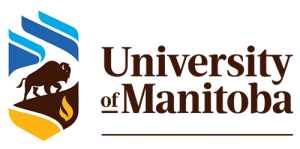We acknowledge that Indigenous student enrolment in post-secondary institutions is low. The Indigenous CREATE program is about making opportunities for Indigenous students to train and develop research skills that can be brought back to their communities.
As of 2022, at the University of Manitoba under 9% of the student population self-declared as Indigenous. Most Indigenous students are enrolled either in the Faculty of Arts or the Faculty of Science. In contrast with the University of Manitoba, and University College of the North, nearly 80% of their students are Indigenous.
To address low enrollment from Indigenous students at post-secondary institutions, it is important to acknowledge and address the barriers Indigenous people experience in education and advocate to find ways to redefine education and how students are engaged in institutions, in accordance with the TRC Calls to Action (Calls 62 through 66).
Part of reconciliation means creating space for Indigenous people in Western institutions, such as Universities. Indigenizing and decolonizing universities are ways of welcoming other ways of knowing, learning, teaching, and doing.

At the University of Manitoba, several programs create more inclusiveness for Indigenous students. One of these programs is Wawatay, a program aimed at “Transforming Indigenous students’ talent and ambition into success in Science”. Another program is ENGAP which “provides opportunities for Indigenous students to get into, prepare for and succeed in the Price Faculty of Engineering”. In addition to Wawatay and ENGAP, there are a number of other Indigenous-focused programs including PINE (Mahkwa Omushki Kiim: Pathway to Indigenous Nursing Education), IBEP (Indigenous Business Education Partners (IBEP), Ongomiizwin Education, and more!
For non-Indigenous researchers, the Community Engaged Learning Center’s “Working in Good Ways” Project at the University of Manitoba “offers practical strategies that community-engaged learning practitioners can apply at different stages of their work with Indigenous communities. We hope you find these resources helpful in your own partnership contexts”.
Please visit the University of Manitoba’s Indigenous programs, for more information.
![]()
At University College of the North, the college is committed to enlivening the principles and Calls to Action of the Truth and Reconciliation Commission. UCN recognizes that truth must precede reconciliation. Therefore, UCN commits to seeking and sharing the truth of Indigenous people. This truth includes the legacy of Indian Residential Schools, the Sixties Scoops, the appropriation of land, the failure to respect treaties and the continuation of colonization. The journey toward reconciliation begins with truths and the work of reconciliation is the responsibility of all UCN faculties, departments, and areas.
Please visit UCN’s commitments for more information.

At Lakehead University, There are a number of Indigenous programs available to students. Some of these programs include Keewatinase, the Department of Indigenous Education, the Indigenous Transition Year Program, the Indigenous Nursing Entry Program, the Indigenous Teacher Education Program, and ISTEM, the Indigenous STEM Access Program.
Please visit Lakehead University’s Indigenous programs, services and initiatives for more information.